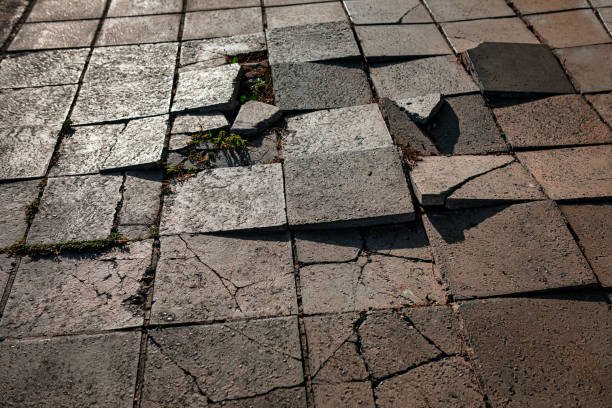Maintaining your pavement is crucial for keeping it both functional and visually appealing, particularly here in Savannah, GA. With regular upkeep and expert care from our homepage Savannah GA team, you can extend the lifespan of your pavement, minimize costly repairs, and enhance your property’s curb appeal. Our services are tailored to local conditions, ensuring your surfaces stay durable and attractive. Here’s a quick guide on essential practices to help you keep your pavement in top shape for years to come.
Pavement lifespan depends on the material, traffic, and maintenance. Concrete pavements typically last 20-40 years, while asphalt lasts 15-20 years. Implementing a Pavement Management System can help extend these lifespans by monitoring road conditions and scheduling preventive maintenance, which reduces long-term costs. Preventive maintenance strategies like resurfacing and crack sealing are key to preserving pavement longevity.
Prioritize Regular Maintenance
Routine maintenance is essential to keeping pavement strong and durable. This includes regular cleaning to remove debris, sealing cracks, and applying seal coating as needed. For areas such as concrete driveways, patios sealing protects the pavement from environmental damage, oil spills, and wear, enhancing durability and curb appeal.

t in Quality Installation
A pavement’s longevity starts with quality installation. Whether it’s your concrete steps, or retaining walls, using experienced contractors ensures proper material selection, proper base preparation, and timely curing. Concrete and asphalt both have specific needs, and quality installation sets the foundation for long-term health.
Address Minor Damages
Repairing small issues immediately can prevent major repairs. Whether it’s cracked patios or damaged stamped concrete, fixing minor cracks or potholes helps avoid costly damage and maintains both functionality and aesthetics. Filling cracks and potholes as soon as they appear prevents water from seeping in, which can cause extensive damage to the sublayers and lead to larger, costlier repairs. Quick repairs are economical and ensure a smoother surface, enhancing both safety and aesthetics.
Manage Drainage Effectively
Water is one of the pavement’s greatest enemies. Without proper drainage, water can accumulate on the surface and seep into the pavement’s foundation, causing erosion and weakening the structure. To avoid this, make sure the pavement is slightly sloped to direct water away from it. Installing drainage systems or gutters in areas prone to heavy rainfall can also help. Proper drainage prevents water from pooling and reduces the risk of cracks and subsurface damage.
Account for Traffic Load
The amount and type of traffic your pavement endures can significantly impact its lifespan. For areas with heavy loads, such as driveways that support large vehicles or parking lots in commercial areas, consider using reinforced materials or thicker pavement layers. Periodic inspections of high-traffic areas can also help detect early signs of damage, allowing for preventive measures before the damage becomes extensive.

Adapt to Seasonal Changes
Different seasons bring unique challenges to the pavement. During winter, snow and ice can be particularly harmful, especially when de-icing salts are used, as they can erode the pavement’s surface. Instead of traditional salt, use de-icers designed for asphalt and concrete to avoid corrosion. In hot climates, UV rays can weaken asphalt, causing it to crack and fade; regular seal coating protects against sun damage while keeping the pavement cool with water on sweltering days can reduce cracking.
Enhance with Proper Sealcoating
Sealcoating protects asphalt from water, oil, and UV damage. Whether on a, concrete pool deck, or patio, it preserves your investment, enhancing the appearance and extending its lifespan by preventing the wear from regular traffic and environmental factors. Sealcoating is typically recommended every two to three years, depending on usage and climate conditions.
Leverage Professional Inspections
Having a professional inspect your pavement annually can help catch early signs of wear, especially in commercial areas with high foot or vehicle traffic. Professionals can identify potential issues that might be overlooked, such as subtle cracks or drainage problems, and recommend suitable maintenance practices or repairs. Regular inspections allow you to stay proactive and extend the life of your pavement by addressing issues before they escalate.
Care for pavement
Proactive care and preventive measures not only extend the lifespan of your pavement but also save on long-term costs. Following these steps can make a significant difference in maintaining your pavement’s appearance, safety, and durability. Investing in routine maintenance, quick repairs, and professional guidance lets you keep your pavement looking new and functioning well, whether it’s a residential driveway, commercial parking lot, or sidewalk.
Conclusion
Extending the lifespan of your pavement is an ongoing commitment, but the rewards are well worth it. With careful maintenance, timely repairs, and professional advice, your pavement can serve its purpose for years, adding value and beauty to your property. So, the next time you consider pavement maintenance, remember these steps for a lasting and cost-effective solution.
FAQ:
Does the type of pavement affect its longevity?
Yes, asphalt, concrete, and pavers each have different maintenance needs and durability; choosing the right type for the usage area is essential.
How can weather impact pavement lifespan?
Extreme weather, such as heavy rain, snow, or UV exposure, can wear down pavement quickly. Preventive maintenance helps mitigate this damage.
What’s the role of proper drainage in extending pavement life?
Good drainage prevents water buildup, which can seep into the pavement layers and weaken the structure, especially during freeze-thaw cycles.
